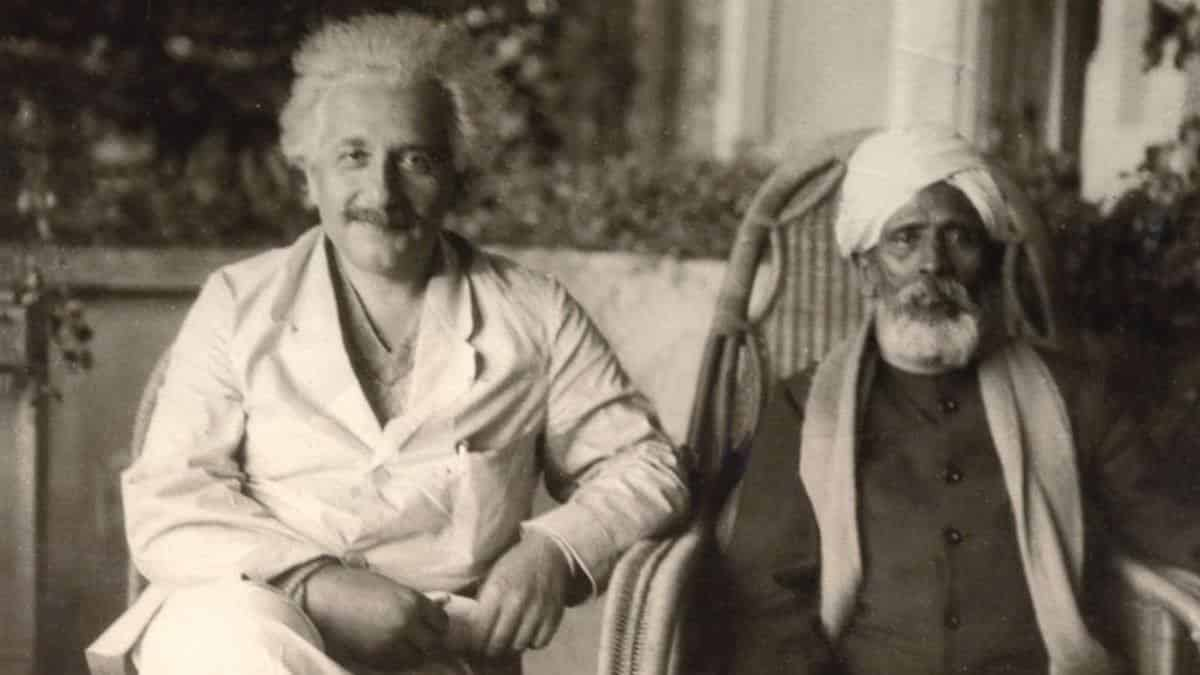Indians are stupid according Einstein’s journals
The Nobel-winning physicist despised Asian people's intellectual ability.

In 1946, physicist Albert Einstein criticized racism in a lecture delivered at an American institution that was the first to provide degrees to black people, coining one of his most famous quotes: “Racism is a sickness of white people.”
If someone had known about a series of diary entries the Nobel-winning physicist made during an Asia visit two decades ago, he could have been diagnosed with the same condition.
These journal passages were recently made public, sparking a controversy about Einstein’s attitudes toward race and individuals from India, Sri Lanka, and China.
Indians were “biologically inferior,” according to Einstein, and were handicapped by the subcontinent’s climate, which “prevented them from thinking backward or ahead by more than a quarter of an hour.”
According to Ze’ev Rosenkranz, associate director of the Einstein Papers Project at the California Institute of Technology and editor of a book including Albert Einstein’s trip diaries, this is the case.
According to Rosenkranz of the British newspaper The Guardian, Einstein makes statements in them that are “contrary to the popular picture of the great humanitarian hero.”
INDIANS AND EINSTEIN
Rosenkranz writes in the introduction to his collection of Einstein’s trip diaries that the scientist’s remarks on Indians, Chinese, and Japanese show a view that is “a clear characteristic of racism.”
The editor claims that on his Far East journey, Einstein encountered Indians in Colombo and noted their presence by alluding to their “primitive lives.”
“[Einstein] also believes that the climate prohibits them from thinking more than a quarter of an hour backward or ahead,” adds Rosenkranz, “an attitude that reflects both Einstein’s conviction in geographical determinism and the Indians’ claimed intellectual inferiority.”
Einstein’s journals mention the environment and its supposed impact on Indians once more.
According to Rosenkranz, Einstein explains the “supposed stoicism of the Indians he meets” to “geographic determinism” by asking, “Wouldn’t we, in this environment, become like the Indians?”
WOULD YOU SAY EINSTEIN WAS A RACIST?
Einstein, a Jew who was famously forced to escape Nazi Germany due to anti-Semitism, might have altered his mind about the race later in his life.
Rosenkranz acknowledges this. “It would be simple to conclude, yeah, he got more enlightened,” Rosenkranz argues in an interview with the Washington Post. “But one should highlight the various components and conflicting elements in the comments that he made and in his personality.”
Indians were “biologically inferior,” according to Einstein, and were handicapped by the subcontinent’s climate, which “prevented them from thinking backward or ahead by more than a quarter of an hour.”
According to Ze’ev Rosenkranz, associate director of the Einstein Papers Project at the California Institute of Technology and editor of a book including Albert Einstein’s trip diaries, this is the case.
“Einstein’s journal comments on the biological foundation of the claimed intellectual inferiority of the Japanese, Chinese, and Indians are clearly not downplayed and may be seen as racist,” Rosenkranz argues, “since other peoples are depicted as physiologically inferior, a clear characteristic of racism.”


